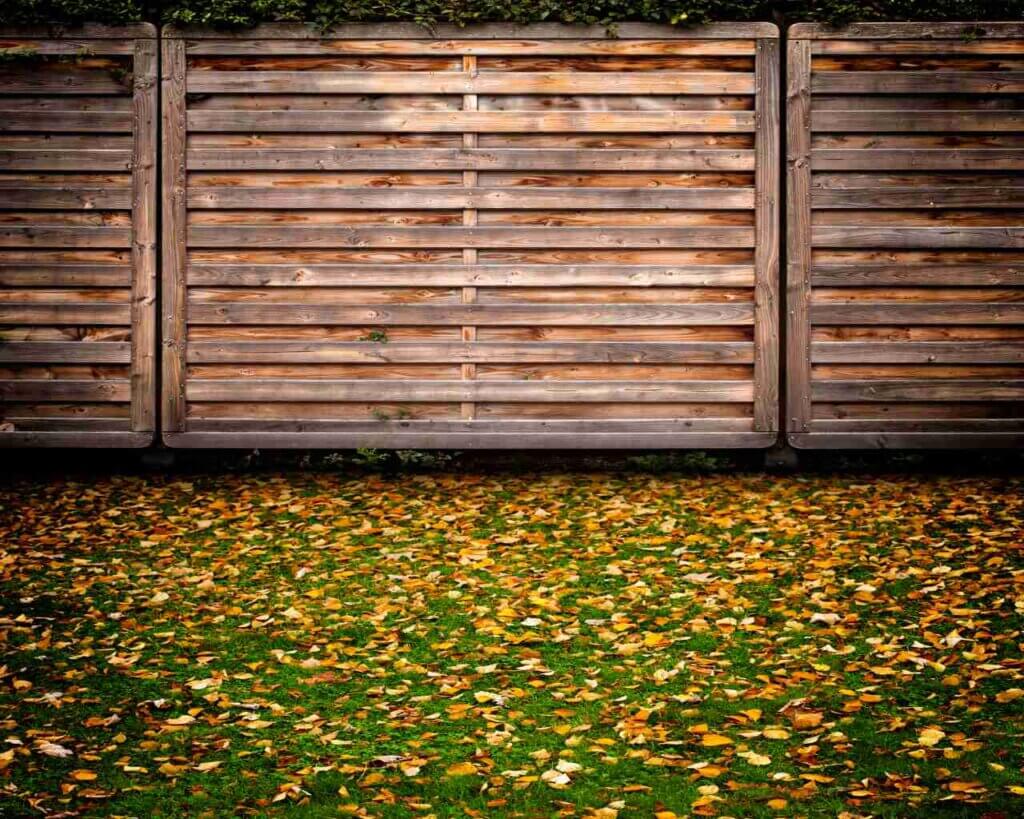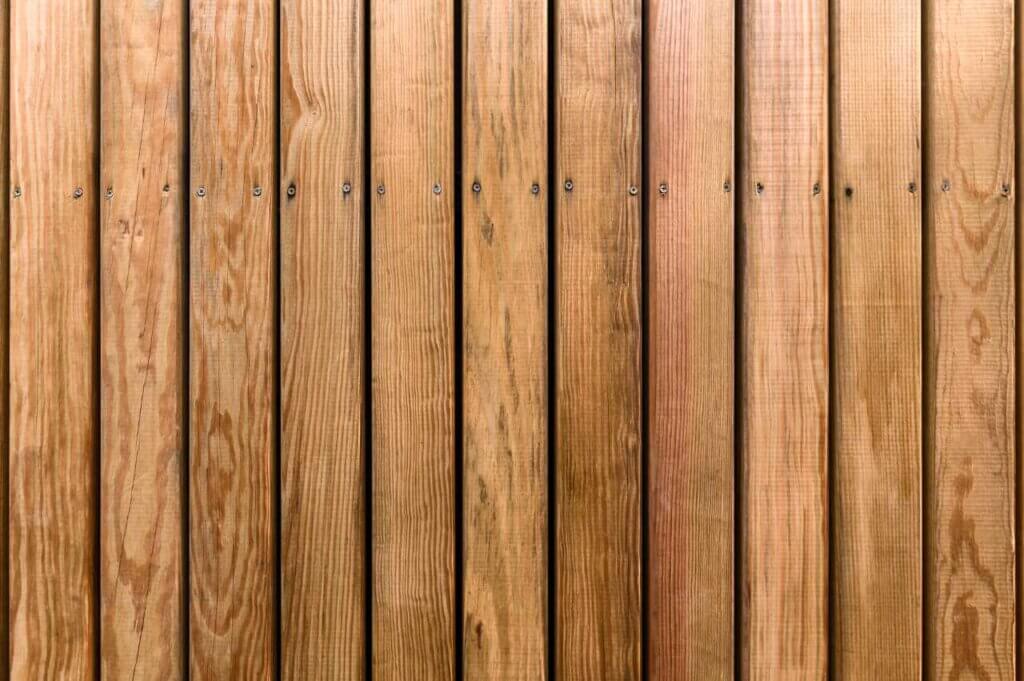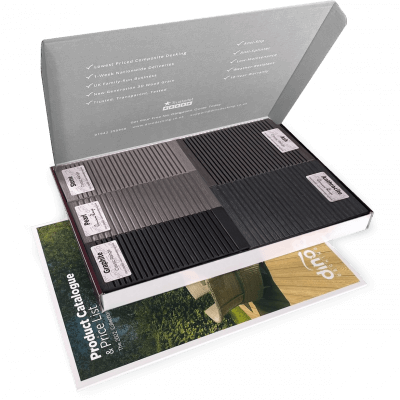5 Composite Decking Lighting Ideas
Our composite decking looks great in any setting, but you can really make your outdoor spaces shine with our decking
Products in Stock
Lowest Prices
Express Delivery
10-Year Warranty
Bank Holiday Weekend Sale. Up To 15% Off.

Living in a busy area has its perks, but peace and quiet often aren’t one of them. Whether it’s traffic noise, barking dogs, or a neighbour’s late-night garden party, unwanted sounds can quickly disrupt your outdoor sanctuary. This is where soundproof fencing comes in. But how exactly does it work, and is it worth considering for your home? Let’s break it down.
A soundproof fence is designed to block or significantly reduce noise entering or leaving your garden. Unlike standard fencing, which primarily offers privacy and security, soundproof fences focus on minimising sound waves.
While no fence can eliminate noise entirely, the right materials and techniques can make a noticeable difference. For even greater longevity and minimal upkeep, you may want to choose durable composite fencing over traditional wood.
The science behind soundproof fences is straightforward: they absorb, block, or redirect sound waves to reduce the noise that reaches your ears.
Sound waves travel through air and solid objects, so effective soundproofing requires a barrier that disrupts or absorbs those waves. This is why a soundproof fence needs to be both dense and tall—two key factors that influence its performance.
Not all materials are created equal when it comes to soundproofing. Dense materials like concrete, brick, and composite panels are far better at blocking noise than lighter options like standard wooden boards.
Composite fencing is particularly popular for soundproofing because it combines strength with durability, all while being low maintenance.
The thicker and denser the fence, the harder it is for sound waves to pass through. A solid, tightly constructed fence will always perform better than one with gaps or thin panels.
Techniques such as overlapping boards, double layers, and acoustic barriers can further improve a fence’s soundproofing capabilities. Pairing these with landscaping, like hedges or trees, can also help muffle noise naturally.

When it comes to choosing a soundproof fence, you’ve got a few options, each with its own strengths.
Solid fences, made from materials like composite or concrete, provide an effective barrier against noise. Their seamless construction ensures minimal gaps for sound waves to slip through.
Acoustic fences are specifically engineered to block and absorb sound. These are often used in commercial settings but can be adapted for residential use if noise levels are particularly high.
Adding a second layer to your fence creates an air gap, which helps disrupt sound waves. This type of fence is ideal if you’re dealing with consistent noise, like traffic or machinery.
Fence wraps are a cost-effective way to retrofit an existing fence for better noise reduction. These are typically made from acoustic materials that absorb and dampen sound.
If you already have a fence and want to improve its soundproofing, there are several methods you can try.
Heavier materials are better at blocking sound, so consider adding layers of mass-loaded vinyl or composite panels to your existing fence.
Acoustic panels are an excellent way to upgrade your fence. They’re designed to absorb sound and can be attached directly to the surface.
For a quicker fix, acoustic wraps are easy to install and effective at reducing noise. They’re also weather-resistant, making them a durable option.
Plants, hedges, and trees act as natural sound barriers. Combining greenery with a soundproof fence creates a multi-layered defence against noise while enhancing the look of your garden.
If you’re handy with tools, you might be tempted to tackle a soundproof fence as a DIY project. While it’s possible, there are a few things to keep in mind.
Adding mass or using soundproof wraps are manageable tasks for most homeowners. However, ensuring the fence is tall, dense, and free of gaps can be more challenging.
For best results, professional installation is often worth the investment. An expert can recommend the right materials and techniques for your specific noise problem. Plus, they’ll ensure the fence meets any local council regulations.
Soundproof fencing can transform your outdoor space into a peaceful retreat, no matter where you live. Whether you’re building a new fence or upgrading an existing one, the right materials and design make all the difference. Noise doesn’t have to rule your life. With the right approach, you can enjoy the tranquillity of your garden again.

Our sample pack contains a sample piece of each colour currently available. Order your free sample pack today to compare the colours and get a true feeling of the Dino Decking range!
Our composite decking looks great in any setting, but you can really make your outdoor spaces shine with our decking
If the idea of having rats under your decking makes you shiver, don’t worry. We’ll let you know the signs
Business hours
Monday: 09:00 – 17:30
Tuesday: 09:00 – 17:30
Wednesday: 09:00 – 17:30
Thursday: 09:00 – 17:30
Friday: 09:00 – 17:30
Saturday: Closed
Sunday: Closed
Contact us
01942 355968
support@dino.co.uk
Collection Address: Unit 1 Wetheral Close Hindley Ind Estate Wigan Greater Manchester North West WN2 4HS
Pages
Products
Testing
Copyright 2025 Dino Decking Ltd All Rights Reserved.
VAT Number: GB296097848.
Company Number: 10837233.